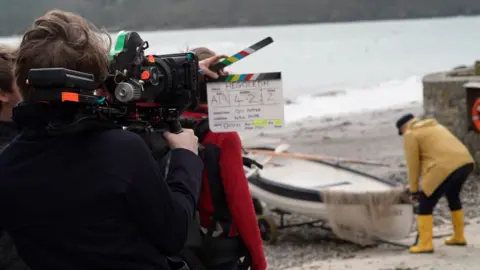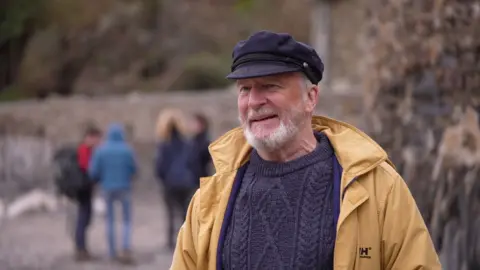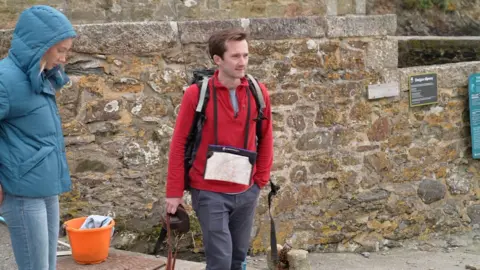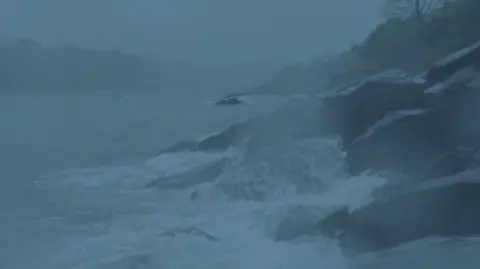New film explores Cornwall's past and present
 BBC
BBCA new short film shot partly in the Cornish language aims to capture the conflict between traditional industries and the tourism trade.
The film, Hegoledh, which is Cornish for "Superstition", bought some winter excitement to the hamlet of Durgan on the Helford River.
The story tells of the mysterious disappearance of all the fish from the river and the search for an explanation - as well as a scapegoat.
It is the latest film to explore the impact of "newcomers" to remote seaside communities, following in the footsteps of Mark Jenkin's Bafta-winning film Bait.

Durgan is an ideal setting to explore the uneasy relationship between Cornwall's past and present.
The tiny hamlet - featuring pretty granite buildings and stunning views - used to be dominated by fishing families, nets and boats.
Now seven of the 15 houses are owned and rented out by the National Trust, including the old school house.
Cornish actor Michael Fenner plays the part of a fisherman who is fighting to preserve a way of life left behind by the modern world.
He said: "It's gently political but the audience won't get it shoved down their throat.
"I guess I represent the old way of life and the tourist that I meet... gets the blame for everything, including the fact there's no fish left."

Director Guy Potter has previously had success with a film shot entirely in the Cornish language called Trengellick Rising.
In this latest work, both Cornish and English are used, and he plays a young visitor who is blamed for the disappearance of the fish.
Potter said: "We're just trying to bring back a little bit more understanding of what life's really like for people outside of the holiday madness.
"Hegoledh tackles the universal theme of xenophobia, of not being welcome somewhere, and the suspicions around someone who's 'not from round here'.
"It's a universal theme for a universal film, that's more fable than fiction.
"Whilst it's designed to be intrinsically Cornish, it's also designed to be familiar the world over."
 Hegoledh / Guy Potter
Hegoledh / Guy PotterThe film is being shot on 16mm Kodak colour film with vintage equipment.
It is a deliberate choice to give the finished piece a blue, wintry feel.
Potter said: "It really helps us connect with the grain and the tactile nature with the salt and the spray and granite."
The film is expected to be released in May and is due to tour Cornish cinemas and international film festivals.
Follow BBC Cornwall on X, Facebook and Instagram. Send your story ideas to [email protected].
